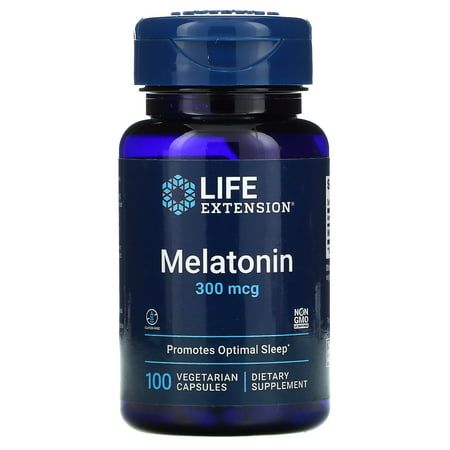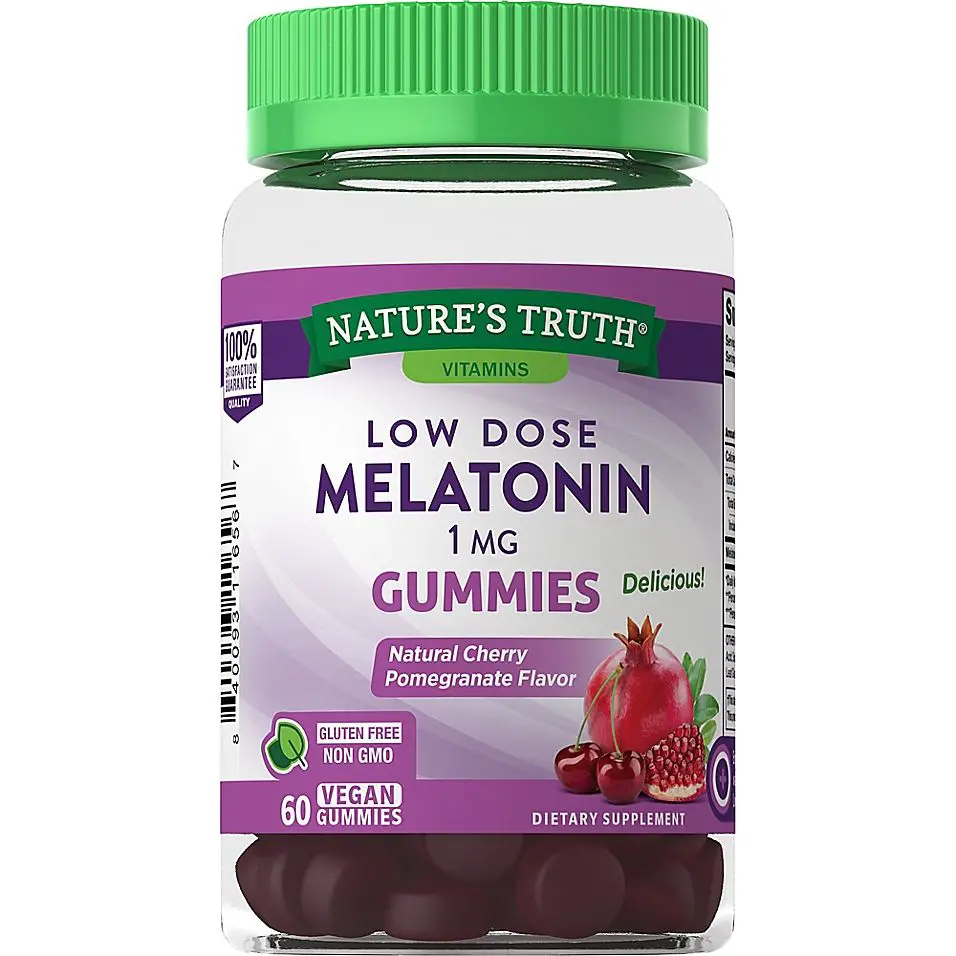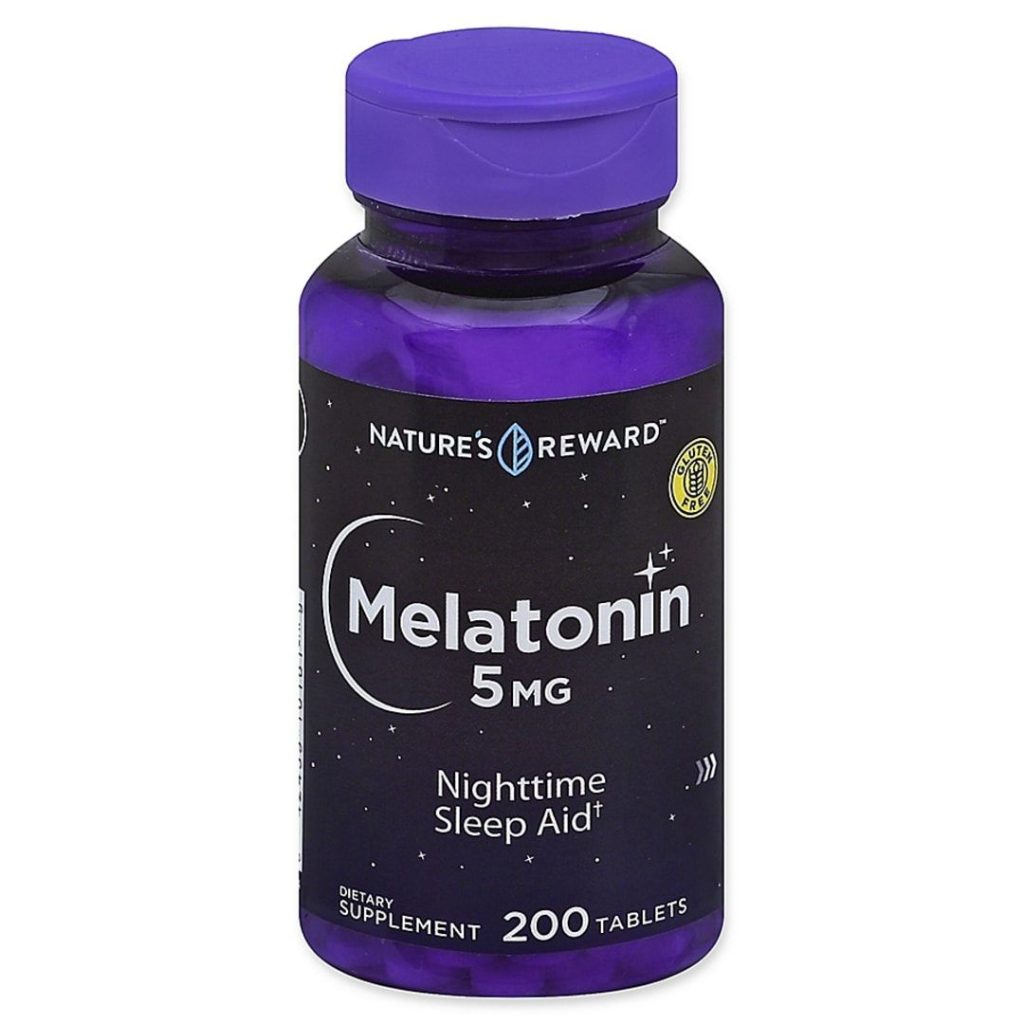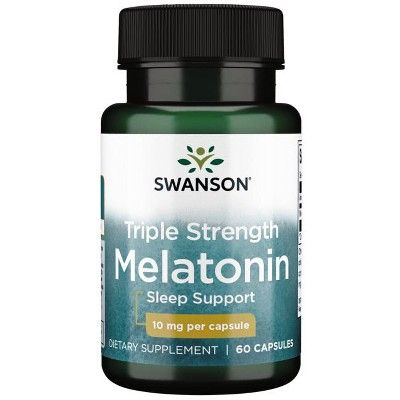The pineal gland in our brains produces the hormone melatonin naturally in our bodies. Melatonin is sometimes referred to as the “sleep hormone” because of its ability to induce sleep.
Despite its name, melatonin has no sedative properties. Instead, it indicates to the body that it is nighttime, allowing you to relax and fall asleep more quickly.
Melatonin interacts with the circadian rhythm, the body’s internal clock that signals when it is time to sleep, wake up, and eat. In addition, it assists in regulating the body’s temperature, blood pressure, and certain hormone levels.
As it becomes darker outside, the melatonin levels in our bodies begin to rise, signaling that it is time to sleep.
Additionally, it binds to receptors in our brains to aid in relaxation. Melatonin can diminish levels of the hormone that keeps us awake, dopamine.
These mechanisms collectively help us fall asleep. When the sun rises, the melatonin levels in our bodies decrease, signaling that it is time to wake up.
Some individuals with insufficient melatonin production may have difficulties falling asleep at night. Stress, smoking, working swing shifts, aging, exposure to too much light at night, and lack of exposure to natural light during the day can all affect melatonin production.
Individuals who have difficulty sleeping may choose to take a melatonin medication to make falling asleep simpler.

Numerous studies have demonstrated that melatonin supplements are useful in aiding sleep onset and enhancing sleep quality. It may offer additional advantages, including:
- Enhancing eye health
- Managing stomach ulcers and acid reflux
- Reducing tinnitus symptoms (ringing in the ears)
- Increasing male growth hormone levels
Before adding melatonin to your regimen, visit your doctor if you are interested in trying it. As with other dietary supplements, you should begin with a low amount and observe its effects before raising the dosage.
It is commonly accessible over the counter and is considered generally safe.
Adverse Effects
Short-term usage of melatonin pills is safe, according to a renowned clinic. Melatonin is unlikely to create habituation or hangover symptoms, unlike many sleep medicines.
However, it does have negative effects, with dizziness, drowsiness, headaches, and nausea being the most prevalent.

In addition, melatonin has less frequent side effects, such as confusion, disorientation, and decreased alertness, as well as irritation, low blood pressure, and abdominal cramps.
The supplement may also induce moderate anxiety, tremors, and temporary depression. Do not operate heavy machinery or drive a vehicle within five hours of taking melatonin.
Higher doses increase the chance of some adverse effects, such as daytime sleepiness and focus impairment. They can also drop body temperature and cause a chilling sensation, according to the Cleveland Clinic.
Melatonin can interact with a variety of pharmaceuticals, including contraceptives, immunosuppressants, and treatments for seizures, blood coagulation, and diabetes. Consult your physician before taking melatonin.
Aids In Sleep
The FDA does not regulate other natural sleep aids, as it does with melatonin, the National Sleep Foundation says. People frequently assume that “natural” products are safe. However, this is not always the case.
In addition to the potential for adverse reactions and drug combinations, the long-term effects are frequently unknown.
Exercise may be the most effective sleep aid because it has more positive side effects than negative ones. A small number of research indicate that exercise dramatically improves sleep in chronic insomniacs.
According to research exploring the effects of long-term exercise on sleep, the practice improves sleep quality and modestly lengthens sleep duration. Remember that you should not exercise within two hours of bedtime.

A study published in the journal of therapeutics investigated the effectiveness of Montmorency tart cherry juice in treating insomnia. Because it is a placebo-controlled crossover clinical experiment, the findings are worthy of consideration despite the small sample size.
According to the study’s findings, the juice improved sleep length and quality. The absence of adverse effects led the authors to conclude that tart cherry juice is a safe and efficient treatment for insomnia.
A warm cup of chamomile tea before bedtime is a potential remedy for insomnia. Eighty women participated in a small clinical experiment published in the Journal of Advanced Nursing that examined the benefits of chamomile tea on insomnia.
Is It Fattening?
Melatonin does not contribute to weight gain. However, inadequate sleep has been connected to weight increase. According to a study published in JAMA, insufficient sleep or irregular sleep patterns are related to a higher body mass index (BMI).
A 2014 study found that low melatonin levels are connected with increased appetite and weight gain. The authors of the study discovered that taking a melatonin supplement led to weight loss among the subjects.
Another study discovered that melatonin pills can aid in weight control because they increase the synthesis of a type of fat that burns calories rather than storing them (beige fat).
Scientists have discovered that taking a melatonin pill over time enhances the calorie-burning benefits of exercise and exposure to cold, hence aiding in weight loss. This is partial because melatonin pills stimulate the synthesis of “good” fat, which burns calories.

Melatonin may raise metabolism, enhance weight loss efforts, and protect muscular tissue, according to the current state of scientific knowledge. It has also been discovered that melatonin pills reduce fat mass and improve lean muscle mass.
Instead of triggering weight gain, melatonin may have the reverse effect and assist you in losing weight. Although the process by which melatonin promotes weight loss is complex, we do know that insufficient sleep can lead to weight gain.
By addressing this issue with a melatonin supplement, you may be able to prevent weight gain caused by sleep deprivation.
Conclusion
We do not fully understand the bulk of melatonin’s functions within the human body. It is particularly useful for sleep issues like jet lag and anxiety.
Additionally, melatonin may help some individuals lose weight, increase muscle, and improve their overall health in various ways.
While some of the findings are encouraging, additional human research is required to assess the health advantages of melatonin supplementation (and potential hazards).
In addition to reducing body weight, melatonin controls insulin sensitivity and acts as an anti-inflammatory. Consequently, those with diabetes and high cholesterol may reap substantial benefits from this.
Even though the FDA regulates nutritional supplements like melatonin, the regulations for nutritional supplements are distinct and less severe than those for prescription or over-the-counter drugs.

